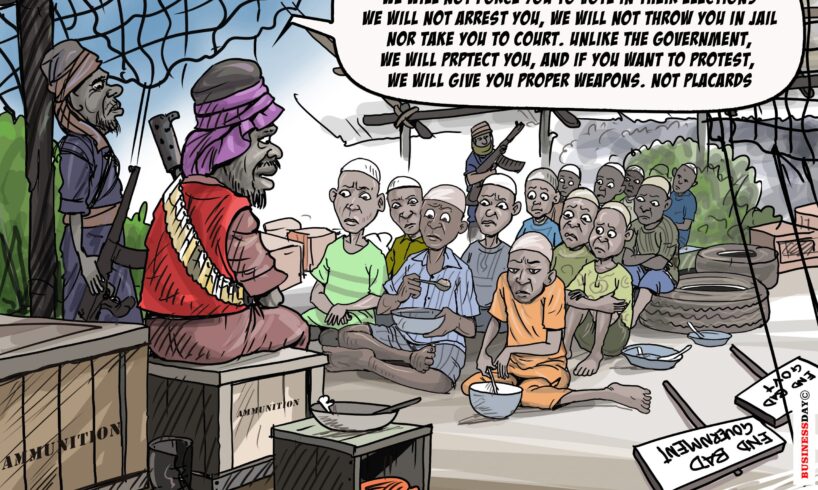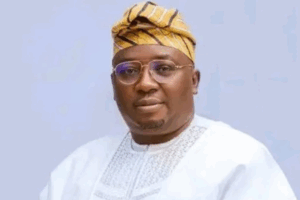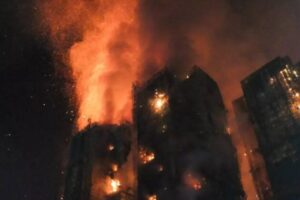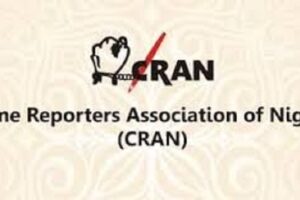
A coalition of prominent Nigerian leaders from across the nation’s ethnic, religious, and political spectrum has issued a warning, declaring that the country is “bleeding” and enduring a national security crisis of such magnitude that parts of the country are suffering “wartime levels of slaughter” while officially at peace.
In a joint statement raising alarm about the situation, the group, which includes former ministers, policymakers, and civic leaders such as Osita Chidoka, Mohammed Abdullahi, and Kadaria Ahmed, stated that national “silence is complicity, and inaction is betrayal.”
The group cited data from Amnesty International indicating that at least 10,217 violent deaths have been recorded in Nigeria in the last two years alone.
Read also: Nigeria tightens border defence as new terrorist groups Lakurawa, Mahmuda emerge
The leaders provided international contexts, noting that the death toll rivals the estimated 10,000–12,000 civilian casualties in the Ukraine war and far exceeds the annual death rate in Syria’s ongoing civil conflict. They argued that this comparison underscores the severity of a domestic crisis that has been met with a “national silence” and a “ritual of press condemnations after each massacre.”
The statement detaild a devastating breakdown of law and order across the country.
In the statement, Benue State was described as a epicentre of violence, with 6,896 killed and over 450,000 displaced. In Plateau, farmers are reportedly unable to access their markets for fear of ambush, watching harvests rot. In Zamfara, the situation is so dire that residents are forced to pay criminal levies via mobile phone under threat of mass killing, with at least 638 villages said to have been sacked.
“Similar horrors persist in Sokoto, Kebbi, Katsina and Niger, where bandits have turned entire districts into fiefdoms,” the group said.
“Meanwhile, Boko Haram is resurging in the Northeast, regaining the ability to launch deadly assaults, kill servicemen and even attempt overruns of local governments, as seen in recent attacks on Gwoza, Damboa, Biu and Bama, forcing farmers off their fields and reviving fears of the dark days when the entire country trembled under their shadow.
“The Southeast, too, is gripped by relentless killings by unknown gunmen, making peace increasingly elusive.”
The root of the crisis, according to the leaders, is that “the Nigerian state has surrendered its monopoly on the legitimate use of force.”
“New armed groups flourish — Lakurawa in Sokoto and Kebbi, Mamuda in Kwara, alongside local militias that exploit old grievances,” the group said.
Rejecting simplistic ethnic narratives, the statement insists the problem is systemic, driven by “poverty, arms proliferation, impunity, injustice, and the erosion of local governance.” It reveals that recent investigations in states like Katsina and Plateau show that many attackers are “Nigerians, sons of the soil… who have abandoned kinship for criminality.”
Drawing lessons from international precedents, the leaders pointed to Colombia, Rwanda, and Northern Ireland as examples of nations that pulled back from the brink through political courage, elite consensus, and structural reforms.
To avert a full collapse, the coalition issued an urgent call to action to the Presidency, National Assembly, Governors, and security chiefs. Their central proposal is the immediate creation of a time-bound, results-driven Presidential Task Force on National Security, vested with extraordinary powers.
This task force would be mandated to operationalise community-based early warning systems, implement a disarmament and reintegration programme, and drive accountability through quarterly public security reports. It must, they insisted, be composed of non-partisan professionals of integrity and report directly to the President while operating free from political interference.
The statement concluded with a grave final word: “Nigeria stands on a knife-edge. Whether we tip into chaos or climb toward peace depends on what we do next.”
They warned that history will judge those in power not for the actions of bandits, but for their own failure to protect the Nigerian people.
Temi Bamgbose
Temi Bamgbose is a new-generation media professional who has an intimate understanding of new and emerging media communications elements. He possesses a degree in Agricultural Extension and Rural Development from the University of Ibadan. He holds a Diploma in Electrical Electronics Engineering from the Moshood Abiola Polytechnic and a Journalism Diploma from the London School of Journalism.
His career as a multimedia journalist saw him working with several online news platforms including The Punch — the most widely read Nigerian newspaper — where he won, along with his team of two, the 2017 season of the Global Editors Network NAN Editors Lab innovation competition.
Temi has also worked with a number of public relations agencies. He also worked extensively on communications accounts of multinational brands.
He is a wildlife conservation enthusiast.





